Philip Harber
The University of Arizona
Effects of Added Emphasis and Pause in Audio Delivery of Health Information
Apr 29, 2024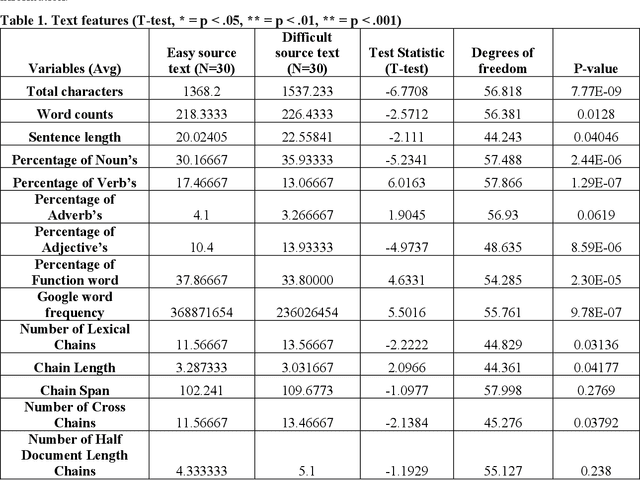
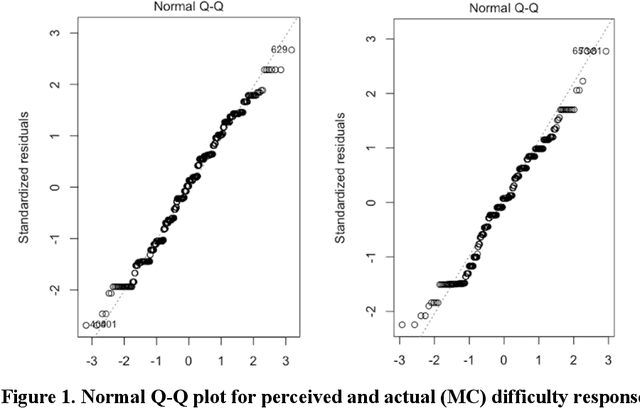


Abstract:Health literacy is crucial to supporting good health and is a major national goal. Audio delivery of information is becoming more popular for informing oneself. In this study, we evaluate the effect of audio enhancements in the form of information emphasis and pauses with health texts of varying difficulty and we measure health information comprehension and retention. We produced audio snippets from difficult and easy text and conducted the study on Amazon Mechanical Turk (AMT). Our findings suggest that emphasis matters for both information comprehension and retention. When there is no added pause, emphasizing significant information can lower the perceived difficulty for difficult and easy texts. Comprehension is higher (54%) with correctly placed emphasis for the difficult texts compared to not adding emphasis (50%). Adding a pause lowers perceived difficulty and can improve retention but adversely affects information comprehension.
Text and Audio Simplification: Human vs. ChatGPT
Apr 29, 2024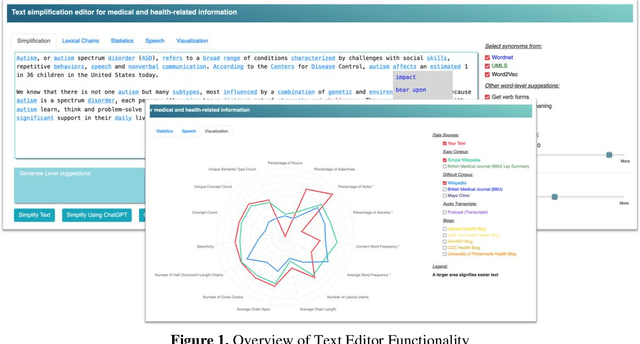
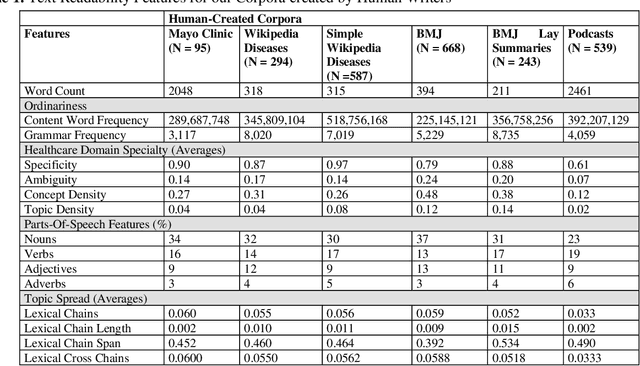
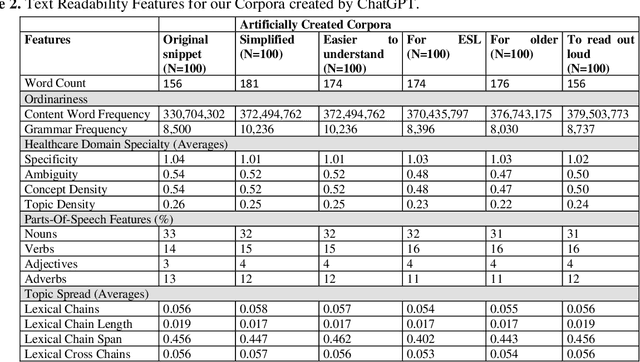
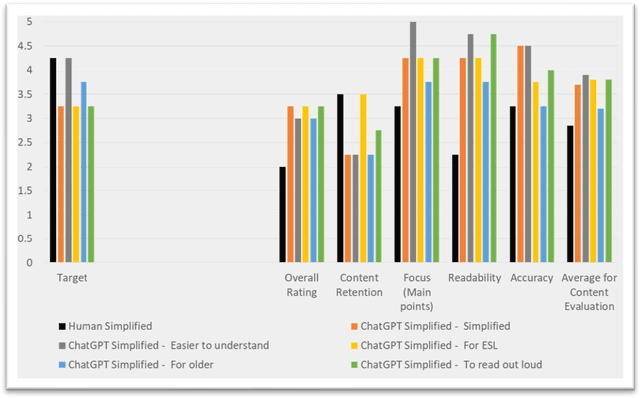
Abstract:Text and audio simplification to increase information comprehension are important in healthcare. With the introduction of ChatGPT, an evaluation of its simplification performance is needed. We provide a systematic comparison of human and ChatGPT simplified texts using fourteen metrics indicative of text difficulty. We briefly introduce our online editor where these simplification tools, including ChatGPT, are available. We scored twelve corpora using our metrics: six text, one audio, and five ChatGPT simplified corpora. We then compare these corpora with texts simplified and verified in a prior user study. Finally, a medical domain expert evaluated these texts and five, new ChatGPT simplified versions. We found that simple corpora show higher similarity with the human simplified texts. ChatGPT simplification moves metrics in the right direction. The medical domain expert evaluation showed a preference for the ChatGPT style, but the text itself was rated lower for content retention.
 Add to Chrome
Add to Chrome Add to Firefox
Add to Firefox Add to Edge
Add to Edge